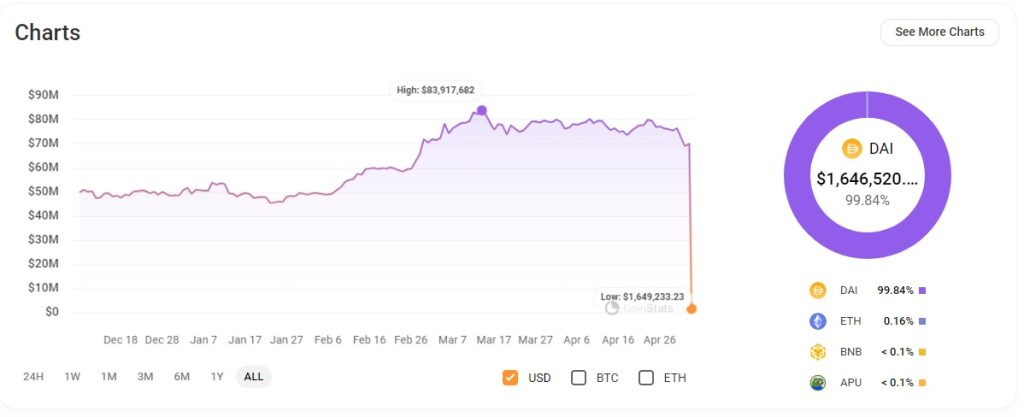NYSE Explores 24 Hour Trading in Response to Crypto Trends
The New York Stock Exchange is exploring the possibility of transitioning to 24-hour trading operations to match the relentless pace of cryptocurrency markets. Simultaneously, U.S. crypto-related stocks have shown notable gains post-Bitcoin halving, despite the halving's typical pressure on mining rewards. In particular, Hut 8 Mining Corp has announced strategic expansions and diversified revenue streams aimed at enhancing its competitive edge in this new market environment. These shifts highlight the evolving landscape of both traditional and digital finance, reflecting broader market trends and investor sentiments.
Round-the-Clock Trading: NYSE Considers 24-Hour Market Operations
In a move that could revolutionize the traditional stock market, the New York Stock Exchange (NYSE) is contemplating the feasibility of a 24-hour trading system, aligning with the non-stop operations of cryptocurrency markets. This inquiry into round-the-clock trading comes as investor behaviors and market dynamics evolve, pushing the boundaries of conventional trading hours.
Historically, the NYSE, with its iconic opening and closing bell ceremonies, has symbolized the heartbeat of American finance. While electronic trading has allowed transactions before the official 9:30 a.m. opening and after the 4:00 p.m. close, the idea of a market that never sleeps is gaining traction, especially in the wake of the cryptocurrency boom and changing global investment patterns.
A Push from 24 Exchange
Leading the charge towards this monumental shift is 24 Exchange, a nascent trading platform backed by billionaire hedge fund manager Steve Cohen. Dmitri Galin, the CEO and founder of 24 Exchange, emphasized the growing demand for such flexibility in trading traditional stocks like Apple or Microsoft, drawing parallels to the 24/7 cryptocurrency markets. “The world changed with the pandemic and with crypto trading 24/7. Everybody has the infrastructure and the support to handle trading overnight now,” explained Brian Hyndman, CEO of Blue Ocean, another advocate for extended trading hours.
Global Demand and Regulatory Considerations
The interest in extended trading hours is not solely driven by the technological capabilities that facilitate such operations but also by the increased global demand for U.S. financial assets. Investors from Asia and Europe, operating in different time zones, are particularly keen on accessing U.S. markets outside traditional hours. This has led to a surge in demand for more flexible trading schedules that accommodate a global investor base.
The NYSE has issued a survey to its market participants, probing their views on various aspects of round-the-clock trading. Key questions include preferences for overnight trading schedules, strategies for protecting investors from potential price volatility, and the logistics of staffing and managing 24-hour market operations.
Regulatory Hurdles and Investor Protection
While the prospect of a 24-hour stock market presents numerous opportunities, it also introduces challenges, particularly in terms of regulation and investor protection. The Securities and Exchange Commission (SEC) is expected to deliberate on the application from 24 Exchange in the coming months, with a decision that could set precedents for future market operations.
Investor protection remains a primary concern, as extended hours could lead to increased price volatility and potential market manipulation. The NYSE’s survey also touches on these concerns, seeking insights on how best to safeguard investors’ interests during non-traditional trading hours.
As the financial landscape continues to evolve, the move towards a 24-hour trading market reflects broader trends in global finance. From the explosive growth of retail trading during the COVID-19 pandemic to the relentless expansion of cryptocurrency markets, investors are increasingly seeking flexibility that matches their lifestyle and geographical location.
The NYSE’s consideration of a 24-hour trading environment is a testament to these shifting dynamics, and the outcome of this exploration could reshape the future of stock trading. As market participants and regulators weigh the pros and cons, the global financial community watches closely, anticipating the potential dawn of a new era in stock market history.
Crypto Stocks Surge Post-Bitcoin Halving, Outperforming Broader Market Trends
This Monday marked a notable surge in crypto-related stocks in the United States, reflecting a broader market upturn just days after the significant Bitcoin halving event. The rally saw substantial gains for the country’s largest publicly-traded Bitcoin miners, with some stocks achieving double-digit percentage increases, as reported by Google Finance.
Prominent Gainers in the Crypto Sector
Among the leaders, Marathon Digital (MARA), CleanSpark (CLSK), Riot Platforms (RIOT), Cipher Mining (CIFR), and Hut 8 (HUT) all reported significant gains on Apr. 22, with their positive momentum extending into after-hours trading. Particularly, Stronghold Digital Mining (SDIG) stood out as the day's biggest gainer, with a remarkable 35.3% increase to $3.64, subsequently rising by another 4% after hours to nearly $3.80.
Riot Platforms also saw an impressive jump of over 23% to $11.24, with a further 3.2% increase after the bell, bringing its price to $11.60. The upward trend was not limited to these companies; overall, U.S. crypto miners experienced price gains extending their rallies from Friday, Apr. 19.
ETFs and Broader Market Response
The Valkyrie Bitcoin Miners ETF (WGMI) — which holds a mix of mining stocks and some chipmakers, including Nvidia (NVDA) — also enjoyed an 11% gain during the day, with a subsequent 3% rise after hours to $16.69. This surge in crypto stocks came despite the Bitcoin mining reward being halved to 3.125 BTC per block following the halving event on Apr. 20.
Market Dynamics and Economic Indicators
These gains coincided with a broader upswing in the U.S. market, where the Nasdaq Composite and the S&P 500 rose by 1.1% and 0.8%, respectively. This recovery followed a period of losses, attributed to easing tensions in the Middle East and forthcoming earnings reports from major technology firms.
However, David Donabedian, the chief investment officer of CIBC Private Wealth, noted to Barron’s that the market remained subdued due to high inflation rates, rising bond yields, and speculation surrounding potential Federal Reserve rate cuts. He also highlighted that nearly half of the country's largest companies were set to disclose their first-quarter earnings this week, potentially adding to market volatility.
Cryptocurrency Market Trends
Following the halving, Bitcoin's price itself has seen a 4.5% increase to $66,810. Before the event, market analysts had mixed predictions about the impact of the halving on Bitcoin’s price. Additionally, other players in the cryptocurrency sector like Coinbase and MicroStrategy also reported gains, with Coinbase up by 7% to $225.86 and a slight 0.8% bump after hours, and MicroStrategy enjoying a 12.7% daily increase, extending another 2.5% after hours to $1,357.
As the week progresses, the interaction between corporate earnings reports, economic indicators, and cryptocurrency market dynamics will be crucial in determining the sustained momentum of these gains. Investors and market watchers will be keenly observing how these factors interplay to influence both traditional and crypto markets in the near term.
Hut 8 Mining Corp Aims for Competitive Edge in Bitcoin's Post-Halving Landscape
In the ever-evolving world of cryptocurrency mining, Hut 8 Mining Corp, a prominent United States-based Bitcoin miner, is making strategic moves to enhance its competitiveness, particularly in a post-Bitcoin halving environment. Benchmark, an investment banking firm, has recently expressed optimism about Hut 8’s potential, highlighting its plans to expand self-mining operations and diversify revenue streams.
Strategic Expansion and Financial Forecast
On Apr. 22, Benchmark's senior analyst, Mark Palmer, released a research note that painted a promising picture of Hut 8’s future. The note detailed the company's transformation following its merger with US Bitcoin Corporation, describing the newly formed entity as having a “diversified business model.” Benchmark has initiated coverage of Hut 8 with a price target of $12, marking a nearly 30% increase from its current share price of $9.22, according to data from TradingView.
Despite having a self-mining hash rate of 5.4 exahash per second (EH/s)—significantly lower than the industry leader Marathon Digital, which boasts a rate of 27.8 EH/s—Palmer remains optimistic. He anticipates that Hut 8 will gradually close this gap, bolstered by its diversified operations which extend beyond traditional mining to include cloud computing, high-performance computing, and artificial intelligence services.
Building a Resilient Business Model
Palmer argued that the variety of Hut 8's revenue streams would provide it with a competitive advantage, particularly in navigating the volatile cryptocurrency market. "We believe the diversity of Hut 8’s platform will benefit it over the long-term, as its revenue streams outside of self-mining position it to weather severe downturns in Bitcoin’s price better than most of its listed peers," he stated.
Furthermore, Hut 8 is noted to have an enterprise value-to-revenue multiple of 2.6, slightly below the average of 3.1 among its publicly traded Bitcoin mining peers. This valuation suggests a more favorable financial position relative to competitors, allowing for potentially greater flexibility and resilience.
Enhanced Liquidity and Strategic Leadership Changes
In addition to its diversified business approach, Hut 8 boasts a substantial reserve of 9,102 Bitcoins, providing a significant liquidity cushion that could help leverage potential price rallies in the cryptocurrency. This financial robustness comes at a crucial time as Hut 8 recently underwent a leadership reshuffle. On Feb. 7, the company announced that Asher Genoot, previously the president and a board member, would replace Jamie Leverton as CEO.
Navigating Challenges
This leadership change followed shortly after a report by short-selling firm JCapital, which claimed that Hut 8 was facing legal troubles and warned of potential financial instability. Hut 8 vehemently refuted these claims, denouncing the report as a “deliberate attempt to spread misinformation” filled with inaccuracies.





